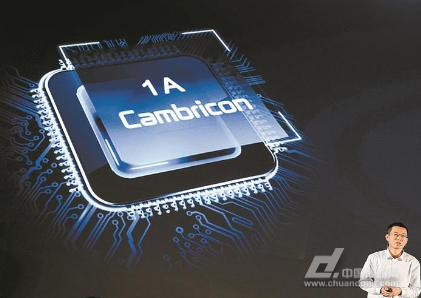Recently, the Chinese Academy of Sciences unveiled a new generation of domestic artificial intelligence chips, covering key areas such as image recognition, security monitoring, and autonomous driving. This development marks a significant step forward in China's efforts to reduce reliance on foreign technology. Chips are often referred to as the "crown jewels" of the information and communications industry. For years, this sector was dominated by a handful of global giants, limiting China's growth in smart device manufacturing. With only a 10% self-sufficiency rate in chip production, China has long faced constraints. However, recent breakthroughs suggest a turning point is approaching. In 2018, the country made major progress in AI chips, particularly in terminal applications. This advancement is expected to help Chinese companies leapfrog into the 5G era and drive innovation across various industries. Huawei, a leading Chinese tech company, has emerged as a key player in the "China Core" movement, ranking among the top five global chip manufacturers for the first time. This success has fueled growth in Shenzhen’s information and communications sector, signaling a shift in the global chip landscape. Despite these gains, China still imports most of its chips. The country is the world's largest chip market, with billions of smart devices produced annually. Yet, only 10% of the chips used are domestically made. While Huawei leads in using its own chips, other sectors like CPU and IC manufacturing lag behind global competitors like Samsung and TSMC, which have already developed 7-nanometer technology. SMIC, China’s leading manufacturer, needs to accelerate its technological advancements to catch up. In 2016 alone, China imported over $227 billion worth of integrated circuits, highlighting the scale of the challenge. To address this gap, the government has prioritized the development of "China Core" chips as part of its national strategy. Driven by the growth of IoT, AI, and autonomous vehicles, the domestic chip industry is experiencing rapid expansion. Over 20 chip design firms and more than 70 semiconductor companies are now listed on the A-share market, reflecting strong investor confidence. According to data from the Ministry of Industry and Information Technology, China's chip sales reached 433.5 billion yuan in 2016, growing by 20% year-on-year. Over the past 14 years, the average compound annual growth rate has been as high as 22%. With emerging technologies like AI, Consumer Electronics, and smart vehicles, the chip market is poised for even faster growth. Analysts predict that the global chip industry is shifting toward China, with increased investment and a surge in new opportunities. Packaging and testing currently represent the largest segment of China’s chip industry and have become one of the most competitive links globally. As the national strategy pushes for independent R&D, domestic chips are expected to rise rapidly in both quality and market share. Huawei’s success in the global SoC market highlights the potential of Chinese chipmakers. In Q3 2017, Huawei’s HiSilicon chips captured 8% of the global market, making it the first Chinese brand to rank among the top five. This achievement reflects growing international recognition of China’s capabilities in chip design. Meanwhile, Gartner reported that the global chip market grew by 22% in 2017, reaching $419.7 billion. Samsung surpassed Intel for the first time since 1992, signaling a major shift in the industry. Memory chips accounted for over two-thirds of the revenue growth, becoming the fastest-growing segment. Looking ahead, AI is set to shape the future of chip development. Experts like Neil Saha from Counterpoint Research believe that AI will be central to the next wave of innovation. Companies like Apple and Huawei are integrating dedicated AI chips, while others are enhancing existing processors to boost AI performance. The AI chip market is also expanding rapidly. In 2016, the global AI chip market reached $600 million and is projected to hit $5.2 billion by 2021, with a compound annual growth rate of 53%. In China, the AI market exceeded 13 billion yuan in 2017, growing by 40.7%, and is expected to reach 20 billion yuan in 2018. This surge in demand is driving the need for more advanced AI chips. Communication expert Mai Haochao noted that AI is not limited to smartphones or computers. From driverless cars to drones and smart home devices, the demand for custom AI chips is expected to far exceed that of mobile phones. While many global players focus on cloud-based solutions, China is positioning itself to lead in terminal AI chips, where there is significant room for growth. With the chip industry moving toward Asia, strong demand for import substitution, and supportive government policies, the rise of the Chinese chip industry is accelerating. As domestic companies continue to innovate and compete globally, the future of China’s chip sector looks increasingly promising. Bluetooth Headphones & Speakers Bluetooth headphones & speakers DongGuan BoFan Technology Co.,Ltd. , https://www.ufriendcc.com